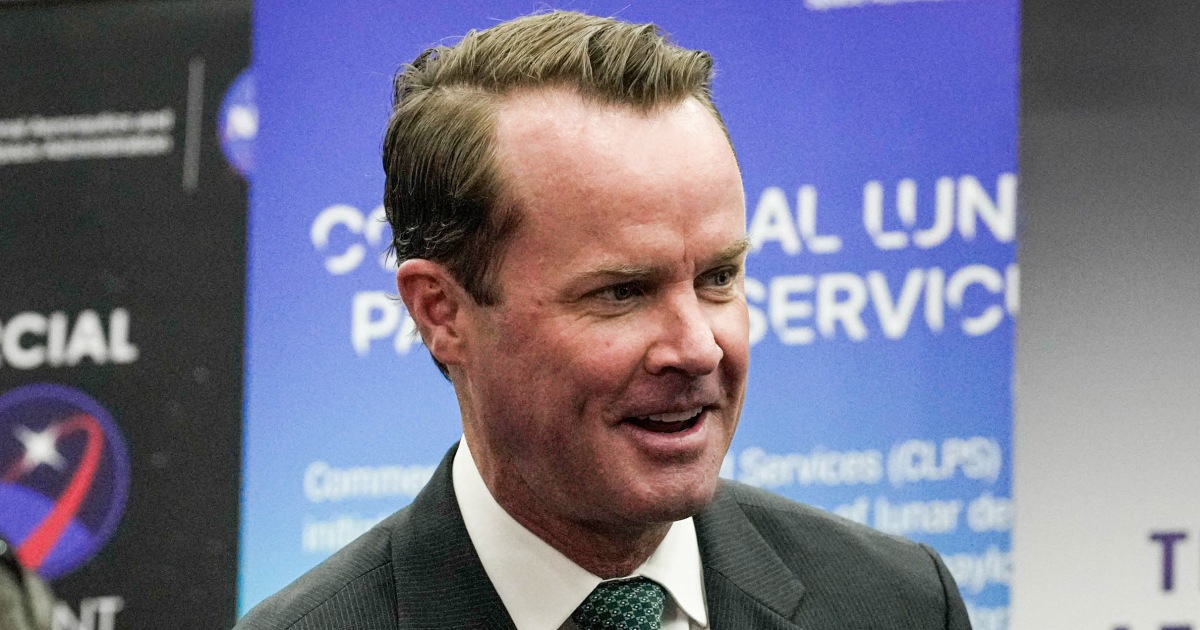Texas House Speaker Dade Phelan narrowly fended off a challenge Tuesday from a conservative activist who was backed by former President Donald Trump and state Attorney General Ken Paxton following a bitter GOP primary.
Phelan defeated David Covey by just 366 votes, 50.7% to 49.3%, in the runoff primary election, according to The Associated Press. Covey took 46% of the vote in the initial March primary compared to 43% for Phelan, but since neither cleared 50% they advanced to a runoff.
“Tonight, I am immensely grateful to the voters of Southeast Texas, who have spoken loud and clear: in Southeast Texas, we set our own course—our community is not for sale, and our values are not up for auction,” Phelan wrote in a post on X Tuesday night.
The results are a victory for the establishment wing of the Texas GOP after Phelan and other state Republican lawmakers were targeted for their role in the impeachment efforts against Paxton last year.
Phelan oversaw the proceedings in the state House, which voted to impeach Paxton on corruption charges. The state Senate ultimately declined to convict and remove him from office.
This won’t be Phelan’s last political battle, though, as the Republican is sure to face a challenge to his speakership. In a statement Tuesday night, Paxton said that lawmakers who vote for Phelan for speaker in 2025 “will not return.”
Paxton also called on Texas Republicans to close their primaries after Phelan’s win so only registered members of the party can participate. Currently, Texas’ primaries are open to all voters regardless of party affiliation.
Phelan was the most notable of eight Texas GOP state House lawmakers who were forced into runoffs after nine lost their primaries outright two months ago. Many were also targeted for defeat by Paxton or Republican Gov. Gregg Abbott over opposition to his school voucher program, exposing deep rifts within the party in the traditionally Republican stronghold.
Phelan, who was first elected in 2014 and became speaker in 2021, has perhaps the most politically precarious job in Texas. Speakers must be elected by their districts and 150 members of the Texas House of Representatives. That means a Republican like Phelan must persuade both Democratic colleagues and conservative primary voters in his own district to re-elect him every two years.
His tenuous balancing act in the chamber was upended last year when he oversaw the Paxton impeachment and sat with the prosecution during the subsequent trial.
Paxton, a staunch Trump ally, vowed revenge on those who tried to oust him, campaigning against Phelan and dozens of other GOP incumbents ahead of this year’s primary, while Texas’ old guard — including former Gov. Rick Perry — had come out in support of Phelan. Abbott remained neutral in the primary.
Roughly $7 million had been spent in the state House district in 2023 and 2024, with Phelan’s campaign spending a whopping $3 million, while Covey’s campaign had spent a little more than half that.
Outside groups sought to close the gap on Covey’s behalf: The Club for Growth has spent $1.1 million in support of Covey, while the School Freedom Fund has spent more than $376,000 targeting Phelan, who oversaw the House’s defeat of the school voucher program Abbott promoted.
Meanwhile, Trump kept up the pressure through the final stretch of the race, touting Covey’s candidacy at the National Rifle Association convention in Dallas this month and noting his endorsement on social media.
“David is leading very substantially against your speaker of the House,” Trump said at the NRA gathering. “We have to get your speaker out so we can go into voter fraud.”
Democrats are hoping GOP infighting will provide them with an opening. The national Democratic super PAC Forward Majority plans to spend more than $2 million on Texas state House races this year with the goal of cutting into the Republicans’ advantage in the chamber.

